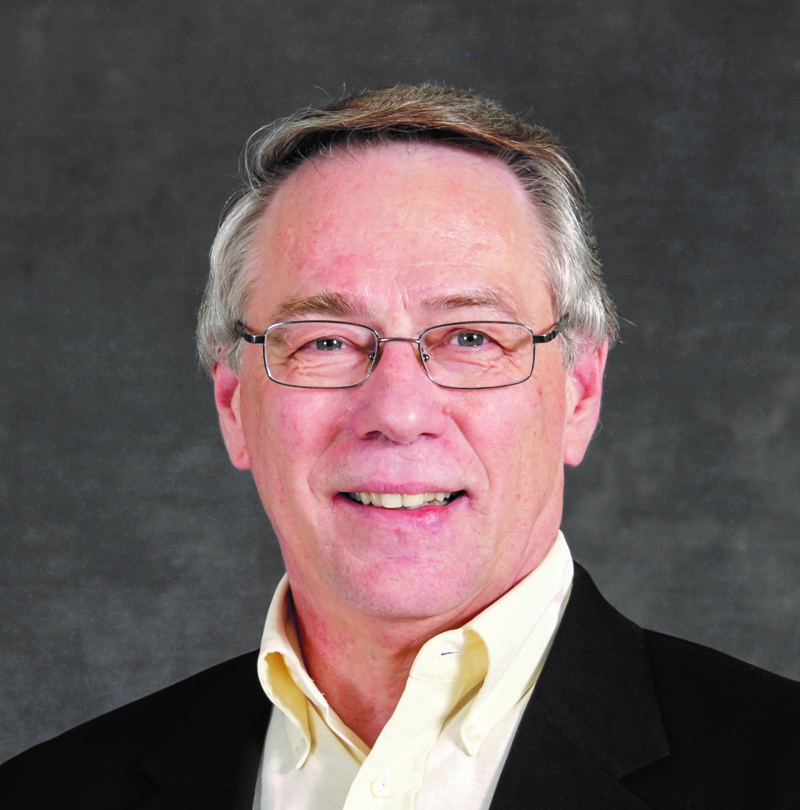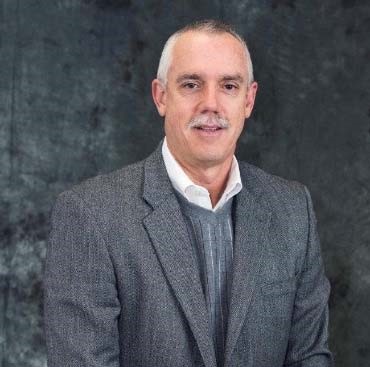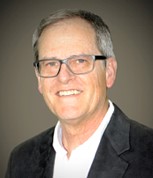Back to Spring Institute Courses
Timing/Location
All courses will be held at the Hyatt Regency Orlando Hotel.
Thursday, May 8 – Friday, May 9
Thursday 8 a.m. – 4:30 p.m.
Friday: 8 a.m. – Noon
Course Overview
Underground distribution continues to be the installation method of choice in many applications on public power systems. Although the initial installation cost of underground distribution is almost always greater than equivalent overhead distribution, it offers a wide range of advantages including greater operating reliability, lower operating and maintenance costs, better public safety and, of course, reduced visibility and greater public acceptance.
Learn how to improve your utility’s policies, standards, and practices for planning, designing, constructing, operating, and maintaining underground distribution and hear about current and emerging industry trends.
Course Topics
- Ensuring long-life cable installations
- A deeper dive into cable design, types, and properties
- Cable manufacturing, standards, and specifications
- Cable life extension methods
- Civil engineering considerations in underground distribution
- Underground structure types and functions
- Routing considerations for underground lines in an urban setting
- Route survey elements and procedures
- Engineering testing
- Installation of cable in underground structures
- Distribution system planning and capital improvements
- Key drivers for underground performance improvement
- System improvement goals
- Strategic system planning
- Improving underground distribution design criteria and standards
- Prioritizing capital investments
- Professional practice in utility underground line design
- Risk exposures and management strategies
- Legal and regulatory environment for utilities and engineers
- The underground line design process
Sample Agenda/Learning Outcomes
View a sample agenda and learning outcomes from the 2024 version of this course [PDF].
Course Level
Intermediate: No prerequisites; no advance preparation. Some knowledge of underground distribution systems is helpful.
All materials will be handed out on-site in the classroom. Participants will receive an email one week in advance of the course with logistical information.
What to Bring
-
Required to bring: a scientific calculator or smart phone calculator app.
-
Required to bring: a print copy (or access to a digital copy) of the 2023 National Electrical Safety Code (NESC) during class.
-
Encouraged to bring: interesting underground distribution photos, as well as underground distribution design guides and standards to share.
Delivery Method / Learning Environment
This course is a group-live offering and includes lecture style teaching, case studies, whole class and small group discussion and sharing, quizzes, practical application problems and exercises, as well as Q&A sessions.
Accreditation
The following continuing education credits will be provided, after successfully completing the course (view “accreditation” drop down below to review requirements). Certificates will be available by June 6.
- Recommended CEUs 1/PDHs 9.5
Recommended for
Designed for electric utility engineers, designers, technicians, and field personnel who are responsible for, or who make decisions concerning, distribution systems, as well as those involved in the management, construction, and operations aspects of distribution systems.
This course is conducted at a practical level and is appropriate for degreed engineers and engineering technicians, as well as non-degreed high school graduates with a general knowledge of the electric utility system.
|
It is highly recommended to attend this course in conjunction with the Basic Underground Distribution Systems course (May 5 – 7). |
Instructors
 Lead Instructor: R. John Miner, P.E., is an accomplished executive manager and educator with over 50 years of experience in the electric utility industry. He is president of Collaborative Learning, Inc., of Austin, Texas, and has been an APPA instructor for more than 35 years and an instructor for the University of Wisconsin for more than 20 years. Before forming his own company, he worked as C.O.O. for the Austin, Texas, Electric Utility Department (Austin Energy), General Manager of Rochester Public Utilities in Minnesota, and as an assistant professor at the University of Houston. John earned a Bachelor of Science degree in electrical engineering (with honors), and a Master of Science degree in engineering science, both from the University of Toledo. John is a Senior Life Member of the IEEE and is a registered Professional Engineer in the states of Texas and Minnesota.
Lead Instructor: R. John Miner, P.E., is an accomplished executive manager and educator with over 50 years of experience in the electric utility industry. He is president of Collaborative Learning, Inc., of Austin, Texas, and has been an APPA instructor for more than 35 years and an instructor for the University of Wisconsin for more than 20 years. Before forming his own company, he worked as C.O.O. for the Austin, Texas, Electric Utility Department (Austin Energy), General Manager of Rochester Public Utilities in Minnesota, and as an assistant professor at the University of Houston. John earned a Bachelor of Science degree in electrical engineering (with honors), and a Master of Science degree in engineering science, both from the University of Toledo. John is a Senior Life Member of the IEEE and is a registered Professional Engineer in the states of Texas and Minnesota.
 Thomas Black, P.E., is a Technical Consultant and Continuing Education Program Developer/Instructor with Collaborative Learning, Inc. He is an accomplished executive manager, consultant and course instructor with more than 35 years of experience in the electric and gas utility industries. In
Thomas Black, P.E., is a Technical Consultant and Continuing Education Program Developer/Instructor with Collaborative Learning, Inc. He is an accomplished executive manager, consultant and course instructor with more than 35 years of experience in the electric and gas utility industries. In
addition to working with Collaborative Learning, Tom’s experience includes employment with both municipal and investor-owned utilities across multiple
jurisdictions in Colorado, North Carolina, South Carolina and Florida. He teaches a variety of courses on technical topics and also has extensive executive level experience in managing electric and gas utility systems, including serving as chief energy officer and energy delivery general manager. Tom has also served on the boards of RMEL (now Alltricity Network) and the Colorado Association of Municipal Utilities and is a member of the Institute of Electrical and Electronics Engineers (IEEE).
 Erich Schoennagel, P.E., is a Technical Consultant and Continuing Education Program Developer/Instructor with Collaborative Learning, Inc. He has cultivated over 45 years of experience in the electric industry. He is a former manager and engineer with CenterPoint Energy and
Erich Schoennagel, P.E., is a Technical Consultant and Continuing Education Program Developer/Instructor with Collaborative Learning, Inc. He has cultivated over 45 years of experience in the electric industry. He is a former manager and engineer with CenterPoint Energy and
managed the Transmission Project Engineering group. Erich served for 15 years as a member advisor and chairman of the Underground Transmission Task Force for the Electric Power Research Institute until his retirement from CenterPoint Energy. There he directed research related to underground transmission and superconductivity. He was a board member of the annual TSDOS symposium, and a former member of the American Concrete Institute 336 committee related to foundation design and construction.
Pricing
|
|
Through April 4 |
After April 4 |
|
Individual Course |
$995 |
$1,095 |
|
Underground Bundle** (save $200!) |
$2,590 |
$2,790 |
| *Nonmember pricing is double the member rate. | ||
| *The Underground Bundle includes registration fees for the two classes in the track: Underground Distribution Systems and Advanced Underground Distribution Systems. | ||
Questions?
- Registration: Registration@PublicPower.org
- Hotel: Meetings@PublicPower.org
- Program/Content: EducationInfo@PublicPower.org
- Billing: Finance@PublicPower.org
Registration
Register now!
Registration Assistance: Review registration FAQs or contact Registration@PublicPower.org
|
|
Registration received by April 4 |
Registration received after April 4 |
||
| Members | Others | Members | Others | |
|
Accounting |
||||
| Accounting Bundle: three courses (save $300) | $2,785 | $5,870 | $3,085 | $6,170 |
|
$1,195 | $2,390 | $1,295 | $2,490 |
|
$695 | $1,390 | $795 | $1,490 |
|
$1,195 | $2,390 | $1,295 | $2,490 |
|
Cost of Service & Rate Design |
||||
| COS/Rates Bundle: three courses (save $300) | $2,285 | $4,870 | $2,585 | $5,170 |
|
$695 | $1,390 | $795 | $1,490 |
|
$695 | $1,390 | $795 | $1,490 |
|
$1,195 | $2,390 | $1,295 | $2,490 |
|
Underground Distribution |
||||
|
Underground Bundle: two courses (save $200) |
$2,590 | $5,180 | $2,790 | $5,380 |
|
$1,795 | $3,500 | $1,895 | $3,600 |
|
$995 | $1,900 | $1,095 | $2,000 |
| Leadership Training/Certificate Program* | ||||
|
$2,900 | $5,800 | $3,000 | $5,900 |
| *The certificate registration fee includes everything you need to participate in and graduate from the program: registration for the in-person courses, program enrollment fee, materials, post-course project review, and graduation plaque. | ||||
Group Registration Discounts
Save money on each registration when your organization registers five or more people for the same class. The larger your group, the more you save! Registrations must be submitted on the same order (at the same time) to qualify for the group discount; discounts cannot be retroactively applied to previous orders. If you need assistance, contact Registration@PublicPower.org.
| Number of registrants | Class Discount (per person) |
| 1-4 | n/a |
| 5-9 | $50 |
| 10-14 | $100 |
| 15-24 | $150 |
| 25+ | $200 |
Cancellations/No-Show/Refunds/Substitutions
Registrants who cancel in writing on or before April 28, 2025, are entitled to a refund of their registration fee, minus a $100 cancellation fee. Registrants who cancel after April 28 will not receive a refund, but attendee substitutions will be allowed. Registrants and no-shows who do not cancel by April 28 are responsible for the full registration fee and are not entitled to a refund. If APPA cancels a course, you will receive a full refund.
- Cancellation requests should be made through your My.PublicPower portal, or addressed to: Registration@PublicPower.org or by emailing Registration@PublicPower.org.
- For more information regarding refund, complaints and program cancellation policies, please contact EducationInfo@PublicPower.org.
Travel Arrangements/Hotel Parking
Travel arrangements and costs associated with hotel parking are the responsibility of the participants. APPA will not reimburse for changes in travel expenditures regardless of the cause.
Meals
A light breakfast, afternoon snack, and beverage breaks are included in the registration fee. All other meals are on your own.
Internet Access
WiFi may only be available in hotel common areas (sleeping rooms and hotel lobby), though may not be available in APPA meeting rooms. Please make arrangements to use cellular data on your device or bring a MiFi or Internet hotspot for personal use. APPA will not provide a password for WiFi.
Name Badges
Name badges can be picked up at the APPA registration desk at the hotel starting at 7:30 a.m.
Code of Conduct
Participants agree to abide by the APPA Code of Conduct. If participants engage in unacceptable behavior as outlined in the code, APPA may take any action it deems appropriate, including but not limited to, expulsion from the current and future meetings, with no warning or refund.
Contact Us
- Registration: Registration@PublicPower.org
- Hotel: Meetings@PublicPower.org
- Program/Content: EducationInfo@PublicPower.org
- Billing: Finance@PublicPower.org
Hotel
Hotel Information
The 2025 Spring Education Institute will take place at the:
Hyatt Regency Orlando
9801 International Drive
Orlando, FL 32819
Reservations
- Phone: (402) 593-5048 (reservations); (407) 284-1234 (main hotel line)
- Group Rate: $239 (Single/Double) per night (plus State and Local Taxes)
- Room Rate Cut-off Date: April 14
- Online Reservation Link
- Group Code: G-APPA
Logistics
- Check-in: 4 p.m.; Check-out: 11 p.m.
- Valet Parking: Valet Parking $50/overnight; Self-Parking $35/overnight
Please note: It is possible that the block of rooms could sell out prior to April 14, so make your hotel reservations early.
Reservations & Cancellations
Please contact the hotel directly to reserve and manage your reservation. If you need assistance making reservations, contact Meetings@PublicPower.org.
Internet Access
WiFi may only be available in hotel common areas (sleeping rooms and hotel lobby) and will not be available in meet¬ing rooms. Please make arrangements to use cellular data on your device or bring a MiFi or Internet hotspot for personal use. APPA will not provide a password for WiFi.
Location
All courses will be held in the Hyatt Regency Orlando. The hotel is located about 13 miles from the Orlando International Airport (MCO). Please contact the hotel for transportation options.
Travel Arrangements/Hotel Parking
Travel arrangements and costs associated with hotel parking are the responsibility of the participants. APPA will not reimburse for changes in travel expenditures regardless of the cause.
Accreditation
Earn While You Learn!
Participate in APPA programs to earn Continuing Education Units (CEUs), Professional Development Hours (PDHs) and Continuing Professional Education credits (CPEs).
What educational credits are available?
You can earn the following kinds of continuing education credits for attending live virtual and in-person sessions—provided the following requirements are met:
Requirements for Successful Completion: In-Person
- Attendees must sign in each day, attend (and participate) in the entire course and complete an evaluation form at the end of class
- Partial credit cannot be given for partial attendance
- Attendance is monitored by an APPA staff member and the instructor
- Completion certificates will be added within 4 weeks to member profiles on the APPA website (for those who meet the requirements)
Continuing Education Units (CEUs): The American Public Power Association is accredited by the International Association for Continuing Education and Training (IACET) and is authorized to issue the IACET CEU. For information regarding certification status, attendance requirements and obtaining attendee transcripts, contact EducationInfo@PublicPower.org or 202-467-2965. Verify our IACET Accreditation.
Continuing Professional Education (CPE) Credits: The American Public Power Association is registered with the National Association of State Boards of Accountancy (NASBA) as a sponsor of continuing professional education on the National Registry of CPE Sponsors. State boards of accountancy have final authority on the acceptance of individual courses for CPE credit. Complaints regarding registered sponsors may be submitted to the National Registry of CPE Sponsors through its website: www.NASBAregistry.com. Unless noted, there are no prerequisites for the courses offered and no advance preparation is required. Courses are group-internet based offerings at the basic program level (unless otherwise noted). Credit hours and areas of study for the courses are listed on the individual course pages. For more information regarding administrative policies, such as clarification of requirements, complaints, and refunds, please contact EducationInfo@PublicPower.org.
Professional Development Hours (PDHs): The American Public Power Association’s educational practices are consistent with the criteria for awarding Professional Development Hours (PDHs) as established by the National Council of Examiners for Engineering and Surveying (NCEES). Course eligibility and number of PDHs may vary by state.
Questions?
- Schedule/Content/Accreditation: EducationInfo@PublicPower.org
Additional Information
What to Bring
If you are enrolled in one of the following courses, please note the items to bring with you. If your course is not listed, you do not have to bring anything.
- Advanced Public Utility Accounting
- Encouraged to bring: A copy of your annual financial statement. Instructors will answer your questions on presentation and application of accounting policies and practices.
- Encouraged to bring: A copy of your annual financial statement. Instructors will answer your questions on presentation and application of accounting policies and practices.
- Cost of Service Workshop
- Required to bring: A laptop with Excel and PowerPoint, to work through in-class exercises.
- Required to bring: A laptop with Excel and PowerPoint, to work through in-class exercises.
- Best Practices in Overhead Distribution Line Design:
- Required to bring: A scientific calculator or smart phone calculator app
- Required to bring: A print copy (or have access to a digital copy) of the 2023 National Electrical Safety Code (NESC) to reference during class
- Encouraged to bring: Interesting underground distribution photos as well as their underground distribution design guides and standards to share
Class Start/End Times
|
Monday |
Tuesday |
Wednesday May 7 |
Thursday May 8 |
Friday May 9 |
|
|
Accounting |
|||||
|
Public Utility Accounting |
8:30 a.m. – 4:30 p.m. | 8:30 a.m. – 4:30 p.m. | |||
| Electric Work Order & Fixed Asset Accounting | 8:30 a.m. – 4:30 p.m. | ||||
| Advanced Public Utility Accounting | 8:30 a.m. – 4 p.m. | 8 a.m. – 3:30 p.m. | |||
|
Cost of Service & Rate Design |
|||||
| Basic Cost of Service & Key Financial Concepts | 8:30 a.m. – 4:30 p.m. | ||||
| Strategic Rate Design: Trends and Distributed Generation Impacts | 8:30 a.m. – 4:30 p.m. | ||||
| Cost of Service Workshop: Implementation and Applications | 8:30 a.m. – 5 p.m. | 8:30 a.m. – 5 p.m. | |||
|
Underground Distribution |
|||||
|
Underground Distribution Systems |
8 a.m. – 4:30 p.m. | 8 a.m. – 4:30 p.m. | 8 a.m. – 4:30 p.m. | ||
| Advanced Underground Distribution Systems | 8 a.m. – 4:30 p.m. | 8 a.m. – 4:30 p.m. | |||
| Leadership Certificate | |||||
| Leadership Essentials Certificate Program | 8:30 a.m. – 4:30 p.m. | 8:30 a.m. – 4:30 p.m. | 8:30 a.m. – 4:30 p.m. |
8:30 a.m. – 12 p.m. |
|
Registration/Name Badges
Name badges can be picked up at the APPA registration desk at the hotel starting at 7:30 a.m.
Meals
Breakfast, beverage breaks, and a light afternoon snack are included in the registration fee. All other meals are on your own.
Dress Code
The attire for the Institute ranges from business casual to casual—whatever you're comfortable in. Meeting room temperatures vary, so prepare to dress for cool conditions.
Travel Arrangements/Hotel Parking
Travel arrangements and costs associated with hotel parking are the responsibility of the participants. APPA will not reimburse for changes in travel expenditures regardless of the cause.
Where and when are the next Education Institutes?
Spring Institute
May 4 – 8, 2026
San Antonio, Texas
Contact Us
- Registration: Registration@PublicPower.org
- Program/Content: EducationInfo@PublicPower.org
- Hotel: Meetings@PublicPower.org
- Billing: Finance@PublicPower.org

